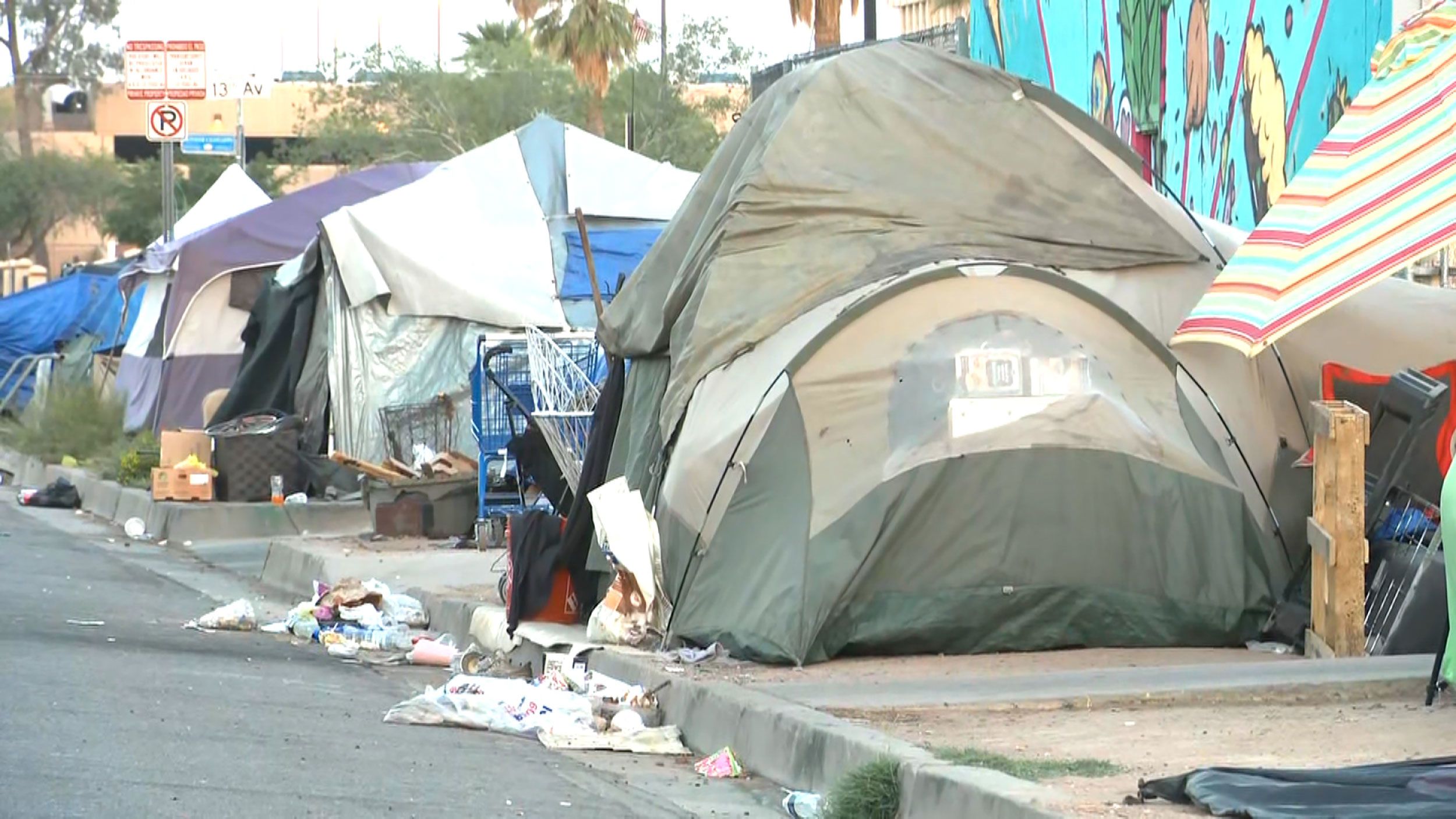Arizona Housing Advocates: GOP Proposals will Worsen Homelessness Amid Record Housing Shortages
Arizona has one of the highest rates of homelessness in the country, with nearly 15,000 individuals experiencing homelessness in early 2024, the highest level in five years. Despite this growing crisis, Republican lawmakers are advancing policies that critics argue will worsen the situation. These proposals, aimed at addressing homelessness, have drawn harsh criticism from housing advocates and nonprofit leaders, who warn that they will exacerbate the problem and leave vulnerable Arizonans without support.
GOP’s Hard-Line Proposals: Drug-Free Zones and Funding Restrictions
One of the most contentious proposals is House Bill 2437, which seeks to turn homeless shelters and services into drug-free zones. The bill, designed to curb the sale of narcotics, would make it a class 1 misdemeanor for shelter staff to allow individuals to possess or use drugs in these spaces. Critics, however, argue that this would force shelter workers to prioritize law enforcement over providing critical support to those in need. John Godfrey, from Native American Connections, warned that this approach could turn clinicians into law enforcement agents, undermining their ability to offer hope and recovery to those battling homelessness and addiction.
In addition to the drug-free zones, another proposal seeks to eliminate state and local funding for “mixed hoteling” — a practice where housing organizations temporarily place homeless individuals in hotels when shelters are full or unavailable. This funding cut would restrict organizations’ ability to address homelessness in emergencies, particularly for vulnerable groups like families, seniors, and people fleeing domestic violence. Critics like Ross Schaefer from Flagstaff Shelter Services argue that this move could leave people out in the cold, putting them at greater risk, especially during extreme weather conditions.

Shortage of Resources: Housing Trust Fund Cuts and Administrative Bottlenecks
The Arizona Housing Trust Fund, which supports affordable housing programs, is also facing significant cuts. GOP lawmakers have proposed pulling $1.25 million from the fund to pay for an audit of state homelessness expenditures. Housing advocates like Nicole Newhouse, executive director of the Arizona Housing Coalition, argue that these funds would be better spent addressing the immediate needs of the homeless, not analyzing spending.
Additionally, lawmakers are pushing for the Arizona Department of Housing to undergo annual evaluations, creating further uncertainty and administrative burdens for the department. Newhouse criticized the one-year review cycle, warning that it would distract from long-term housing solutions and delay the development of affordable housing projects. Affordable housing projects often take years to develop, and the instability caused by these short-term reviews could discourage developers and delay progress.
The Need for Collaboration and Compassion
Housing advocates, including Schaefer and George Campbell from the Arizona Veterans StandDown Alliance, argue that punitive measures and restrictions on available resources will only make it harder for organizations to provide the support that homeless individuals need. Schaefer emphasized that homeless individuals shouldn’t have to be sober to access life-saving services, and Campbell added that mixed hoteling is an essential tool in providing emergency housing when other options are exhausted.
Instead of focusing on punitive measures, advocates are calling for lawmakers to renew and expand Arizona’s Affordable Housing Tax Credit. This program, which helps fund affordable housing projects, has already contributed to the creation of over 1,500 units since its inception in 2021. Expanding the program could provide much-needed relief to the state’s growing homelessness crisis and help build long-term solutions to the problem.
Conclusion: A Call for Effective Action
As Arizona grapples with its homelessness crisis, housing advocates are urging lawmakers to prioritize collaborative, compassionate solutions. Rather than focusing on punitive measures and restricting funding, advocates believe the state should invest in expanding affordable housing, providing support for homeless individuals, and fostering long-term solutions. With more than 133,000 affordable housing units needed, decisive action is critical to ensuring that Arizona can tackle its homelessness crisis effectively.


Comments are closed, but trackbacks and pingbacks are open.